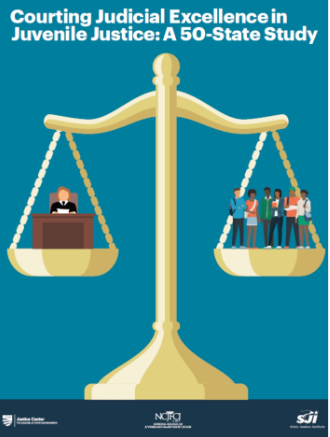Juvenile court judges are the most important public figures in the juvenile justice system–their decisions impact whether hundreds of thousands of youth each year become court involved and for how long, whether they are involuntarily removed from their homes and communities, and the services they receive. Despite the importance of these judges, states and locales have generally not assessed whether and how the structure, roles, and operations of their juvenile courts support or hinder public safety and positive youth outcomes.
To support improved practice, the Council of State Governments Justice Center, in partnership with the National Council of Juvenile and Family Court Judges, conducted an analysis of how juvenile courts are structured and operate in all 50 states. The resulting report, Courting Judicial Excellence in Juvenile Justice, highlights key recommendations to improve juvenile court policy and practice and includes examples of best practices across the country. Key recommendations include:
- Establish specialized and dedicated juvenile and family court judges
- Ensure that judges hearing delinquency cases have the tools and resources necessary to adjudicate delinquency cases in a developmentally appropriate way
- Require all judges who hear delinquency cases to receive ongoing training on juvenile justice
- Establish dedicated forums focused on strengthening and supporting juvenile court
- Identify statewide performance measures for juvenile court
An accompanying tool, which highlights key juvenile court metrics, can be found at the Juvenile Justice GPS. Additionally, NCJFCJ passed a resolution on the importance of juvenile court specialization which can be found here.


